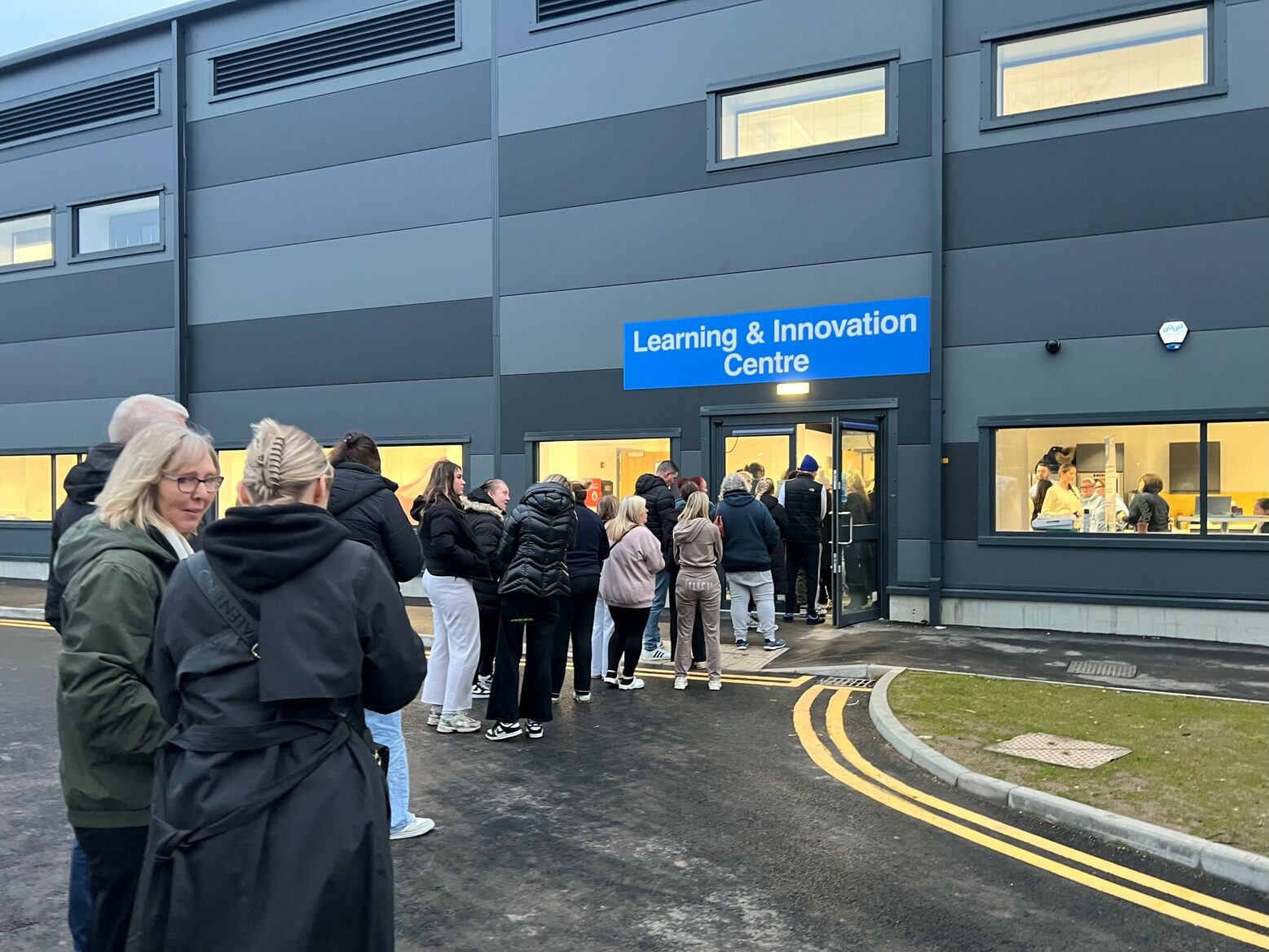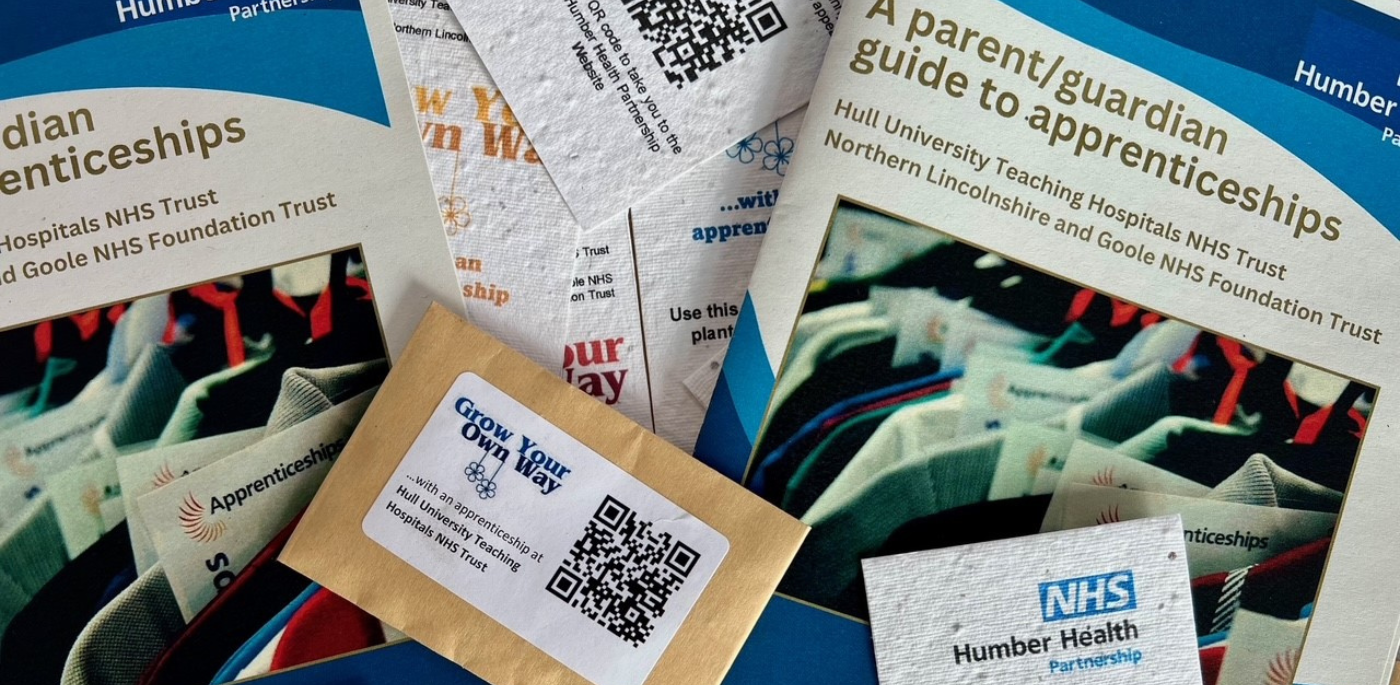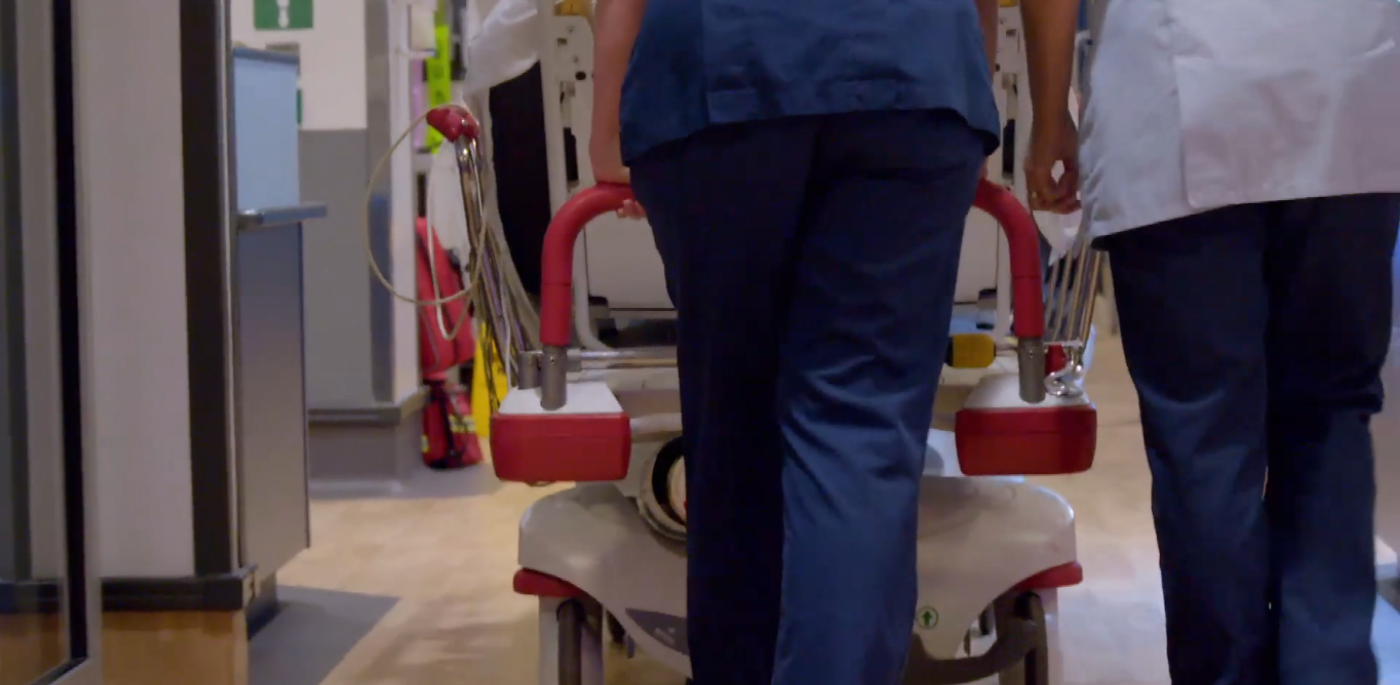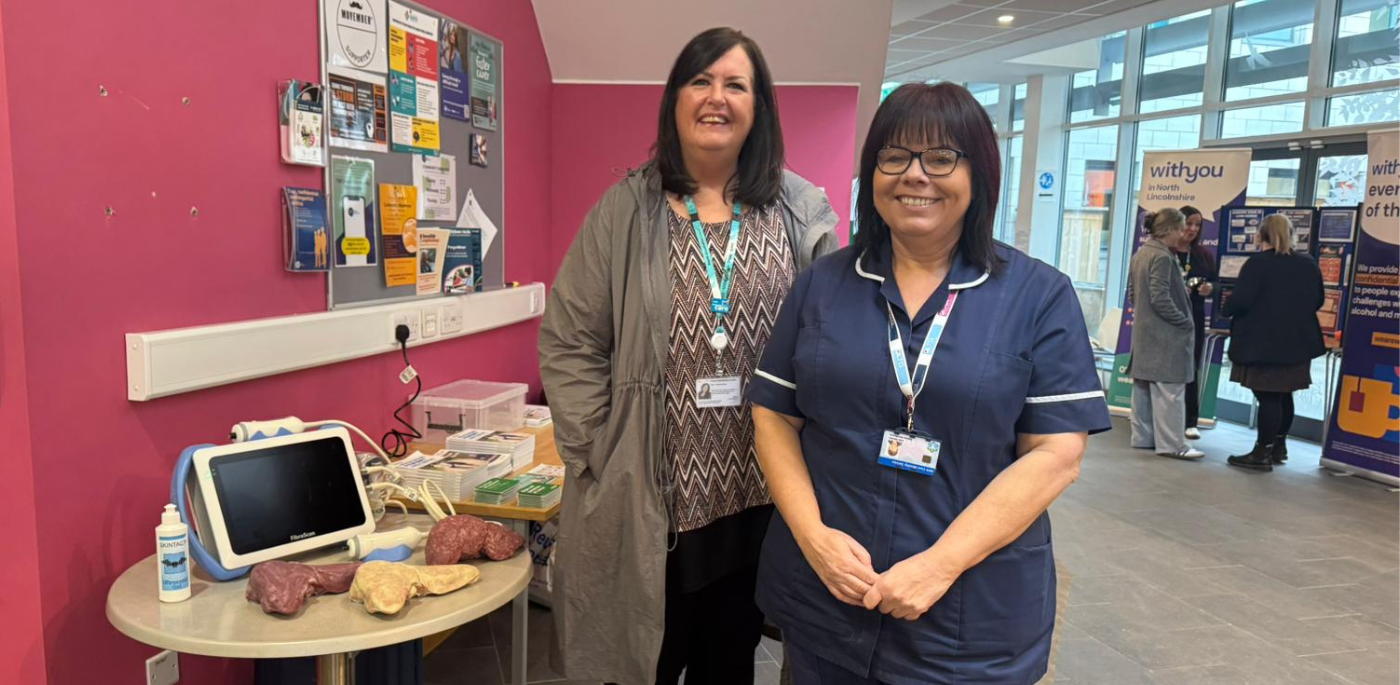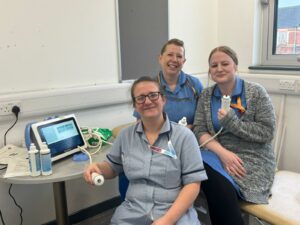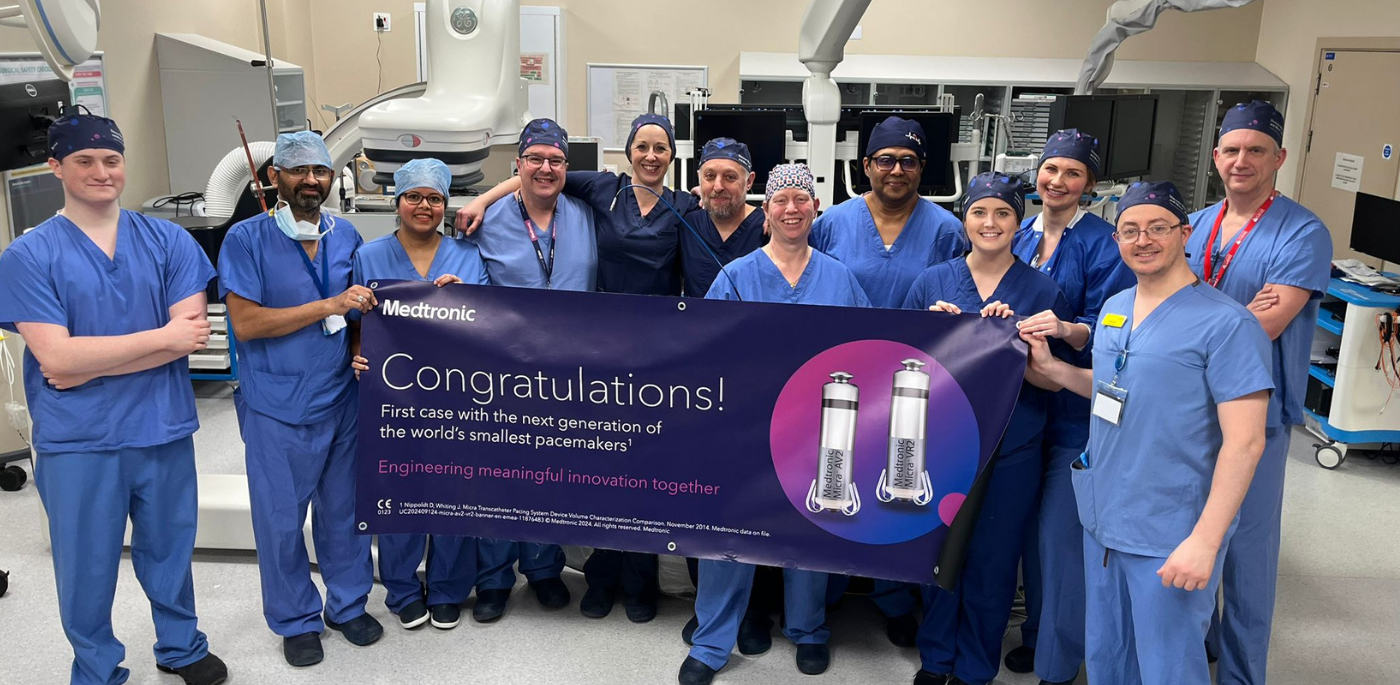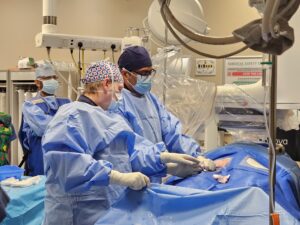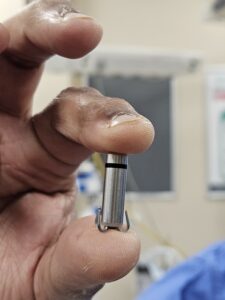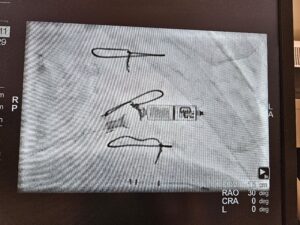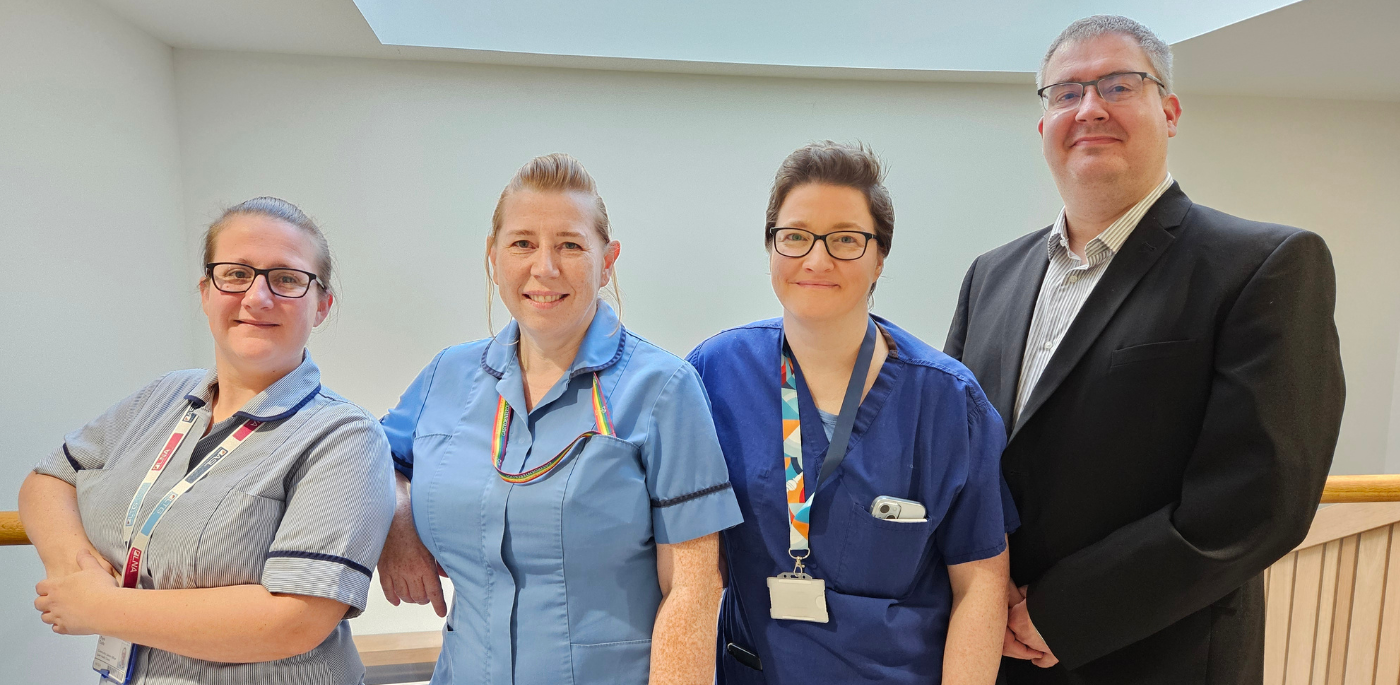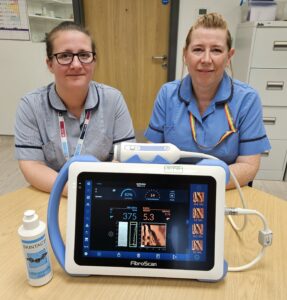Hundreds of people of all ages and backgrounds attended a special event at Castle Hill Hospital last night to learn about nursing careers and apprenticeships in the NHS.
The Apprenticeship team at NHS Humber Health Partnership had planned to see around 150 people interested in joining one of three different routes for apprentices into nursing careers.
 However, more than 300 people from school leavers to older people seeking a new career direction attended the two-hour drop-in at the new Learning and Innovation Centre at Castle Hill Hospital in Cottingham.
However, more than 300 people from school leavers to older people seeking a new career direction attended the two-hour drop-in at the new Learning and Innovation Centre at Castle Hill Hospital in Cottingham.
Anne Burdis, Widening Participation Manager, said the event, held as part of National Apprenticeship Week, surpassed all expectations and was an overwhelming success.
She said: “We’d expected around 60 people last year and 150 turned up and we were absolutely delighted. We were expecting the same again this year but we’d more than 300 people coming with their friends, parents and family members to find out about apprenticeships.
“We’d so many people, we’d to introduce a queuing system so we could help everyone who turned up.
“While we had many people asking about our nursing apprenticeships, we’d lots of people asking about other clinical roles like midwifery and operating department practitioners and paramedics as well as lots asking about non-clinical roles in the NHS.”
 The group, which runs Hull Royal Infirmary, Castle Hill Hospital, Goole Hospital, Diana, Princess of Wales Hospital in Grimsby and Scunthorpe General, currently employs around 450 people studying towards an apprenticeship of some level in areas such as nursing, therapies, estates and facilities.
The group, which runs Hull Royal Infirmary, Castle Hill Hospital, Goole Hospital, Diana, Princess of Wales Hospital in Grimsby and Scunthorpe General, currently employs around 450 people studying towards an apprenticeship of some level in areas such as nursing, therapies, estates and facilities.
Four apprenticeship routes are offered for those interested in nursing careers in conjunction with Hull College, North Lindsay College and the University of Hull – Trainee Nursing Associates, a Registered Nurse degree programme and Level 2 and 3 apprenticeships for Health Care Support Workers.
The event was held to encourage people to apply for the new intake of apprenticeships starting in September, with around 15 places for each nursing apprenticeship cohort.
Claire Pick and Pearl Armstrong, both Education and Development Advisors in the team, linked up with 40 schools and colleges in the area and worked with Cornerstone, a Hull-based organisation supporting young people, to publicise the apprenticeship programme ahead of the event and produced a special guide for the first time to help parents and guardians support a young person through an apprenticeship.
 Practice Development Matron Natalie Hall said apprentices currently enrolled in the nursing programme also attended the event to help speak to people keen to follow in their footsteps.
Practice Development Matron Natalie Hall said apprentices currently enrolled in the nursing programme also attended the event to help speak to people keen to follow in their footsteps.
Natalie said: “We’d our younger apprentices speaking to school leavers and college students about their experience while some of our older apprentices were able to speak to people looking for a change in career or to move into nursing from an existing NHS role.
“We’re really happy with how the event went and we’d like to thank everyone who dedicated their time to making the night such a success.”
The next stage in the process is for people to apply for the places ahead of the new intake in the autumn.
Visit Apprentices – join.humberhealthpartnership.nhs.uk to find out more.

